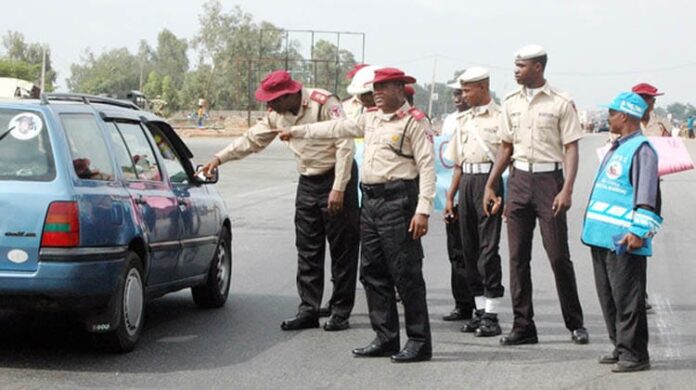Arming FRSC: A serious blunder, by Timothy Ali Samuel
The recent proposal by Corps Marshal Shehu Mohammed of the Federal Road Safety Corps (FRSC) to arm its personnel has sparked significant debate across Nigeria. While insecurity in the country has become a grave concern, the suggestion to hand firearms to road safety officers is a policy misstep that could create more problems than it solves.
The FRSC was established with a clear mandate: to ensure safety on Nigerian roads, enforce traffic regulations, and reduce accidents. It is a civil-oriented agency, distinct from the military and police. Its duties centre on saving lives, not taking them. Introducing arms into this setup would fundamentally alter its character and undermine the very trust it has managed to build with motorists.
Equipping FRSC personnel with firearms risks militarising an institution designed to be civil. Nigerians are already dealing with heavily armed law enforcement agencies whose interactions with citizens often escalate into violence. To add another armed agency to this mix would worsen tensions and erode public confidence in the safety sector.
There is also the danger of abuse. Instances of police brutality, accidental discharges, and misuse of weapons are already widespread in Nigeria. Giving guns to FRSC officers, many of whom are not trained for combat or riot control, would expose motorists and commuters to unnecessary risks. Road safety checkpoints could easily become zones of intimidation instead of assistance.
The Corps Marshal argues that insecurity on highways has endangered FRSC staff. While this concern is valid, the solution should not be to arm the corps. Rather, highway security is the responsibility of the Nigeria Police Force and other security agencies. The FRSC can and should continue to collaborate with these bodies for protection where necessary, instead of duplicating their role.
READ ALSO: Eighty years later, is the UN still fit for purpose?, by Timothy Ali Samuel
Furthermore, arming the FRSC would create confusion about the separation of duties among Nigeria’s security institutions. The lines between traffic management and law enforcement are already blurred. Giving FRSC firearms would intensify overlap and inter-agency rivalry, which often leads to clashes and inefficiency in Nigeria’s security structure.
There is also the financial burden to consider. Procuring weapons, ammunition, and military-grade training for FRSC officers would require billions of naira. At a time when the country is grappling with unemployment, inflation, and a strained budget, diverting scarce resources to arm a civilian road safety agency is both wasteful and irresponsible.
The risk of corruption and arms proliferation cannot be ignored. Nigeria already struggles with illegal arms in circulation. Arming FRSC personnel without robust accountability systems may contribute to more weapons leaking into the wrong hands through theft, black market sales, or negligence.
What FRSC truly needs is not firearms, but better equipment, training, and technology. Investment in patrol vehicles, breathalysers, body cameras, speed detectors, drones, and surveillance systems would be far more effective in tackling road safety challenges. These tools would help the corps carry out its mandate without endangering lives.
In addition, FRSC personnel should be given enhanced protective gear for when they operate in high-risk areas. Reflective vests, communication devices, and rapid response support from armed security agencies can ensure their safety without turning them into another armed force.
READ ALSO: Human rights group rejects bill seeking firearms for FRSC officials
It is also crucial for the corps to prioritise public enlightenment campaigns. Much of Nigeria’s road carnage stems from reckless driving, poor road culture, and ignorance of traffic rules. Instead of arming personnel, the FRSC should intensify efforts in sensitising motorists, educating commercial drivers, and collaborating with schools to instil road discipline from an early age.
Nigerians are already overwhelmed by an environment where interactions with uniformed men often instil fear rather than a sense of safety. Adding guns to FRSC checkpoints will only deepen this mistrust. Motorists would approach officers with suspicion, fearing harassment or violence, thereby undermining cooperation.
The move also risks politicisation. In Nigeria’s charged political environment, arming another agency could easily be misused by politicians or power brokers to intimidate opponents under the guise of law enforcement. This would set a dangerous precedent.
Instead of pushing for firearms, the FRSC leadership should advocate for stronger partnerships with the police and military in securing highways. Joint patrols can guarantee safety without compromising the FRSC’s civil identity.
READ ALSO: Court bars FRSC from impounding vehicles with faded number plates
Moreover, reforms within the corps should focus on discipline and professionalism. Cases of extortion and misconduct by FRSC personnel still exist, adding weapons to this environment without first addressing integrity and accountability would be reckless.
Nigeria must resist the temptation to solve every insecurity problem with guns. True safety on the roads comes not from firearms, but from prevention, education, discipline, and effective collaboration. The FRSC must remember that its mission is to save lives, not militarise the roads.
Arming the FRSC would be a historic mistake. What Nigeria needs is smarter investment in road safety, not another armed institution. The government should reject this proposal outright and instead focus on strengthening the corps through innovation, training, and partnerships. Anything less risks turning a life-saving agency into a threat to the very people it was created to protect.
Timothy Ali Samuel is a student of Mass Communication at Muhammadu Buhari University of Maiduguri (formerly the University of Maiduguri), Borno State.
Follow the Neptune Prime channel on WhatsApp:
Do you have breaking news, interview request, opinion, suggestion, or want your event covered? Email us at neptuneprime2233@gmail.com





